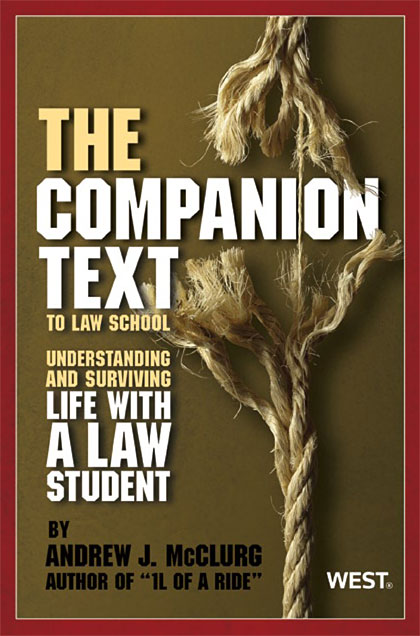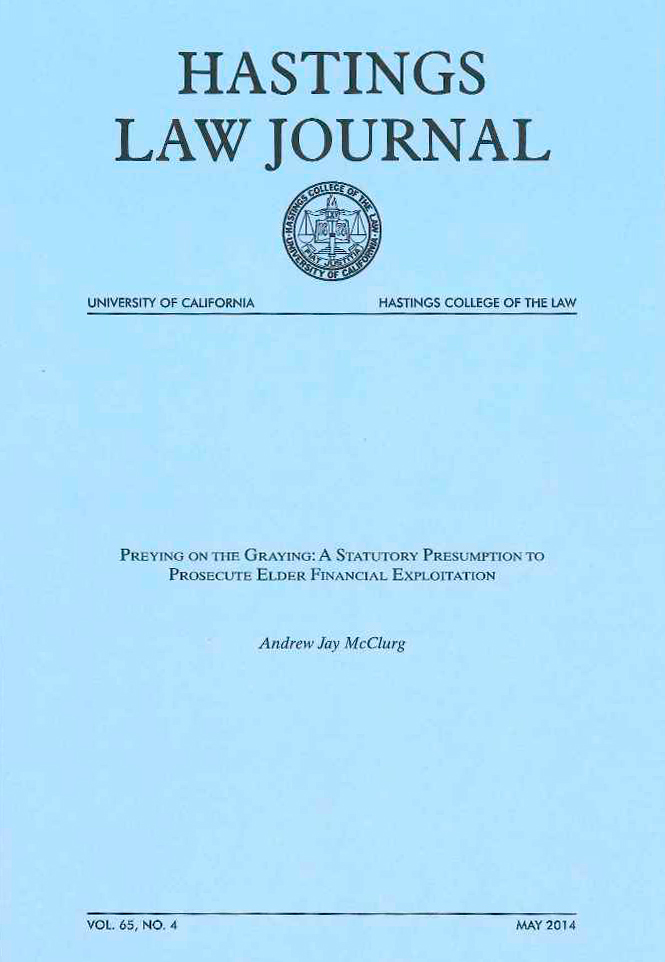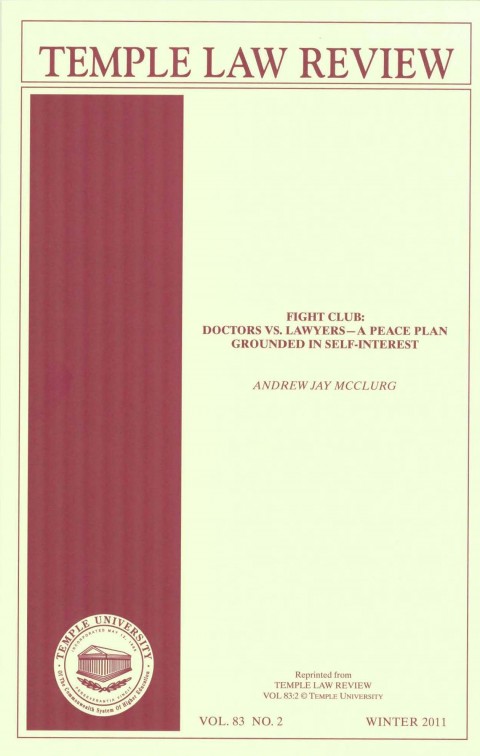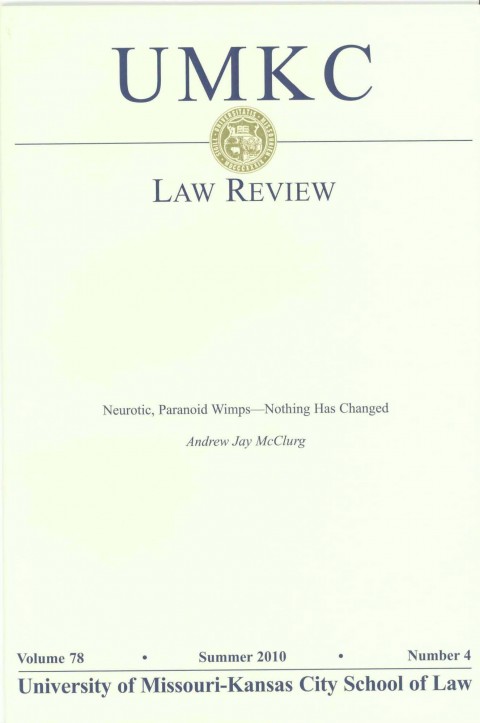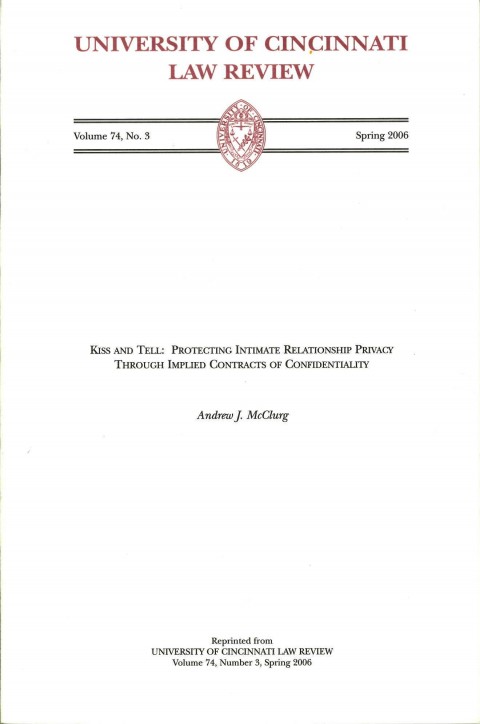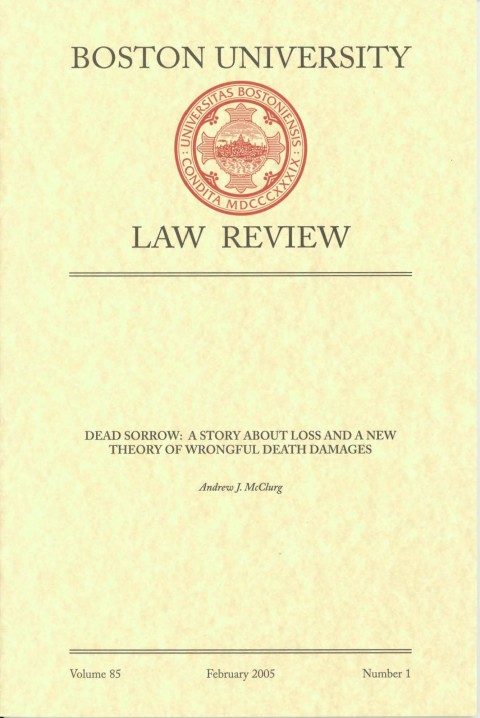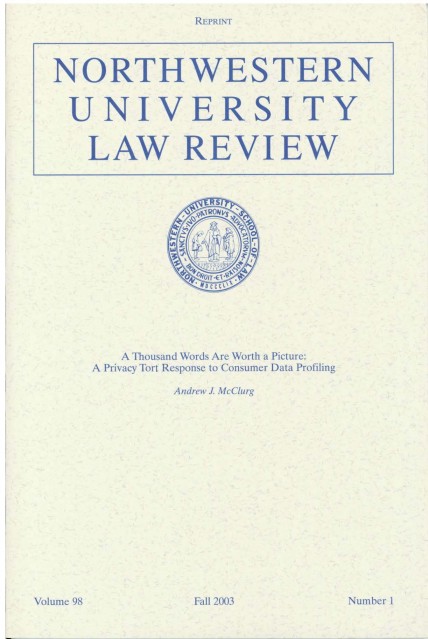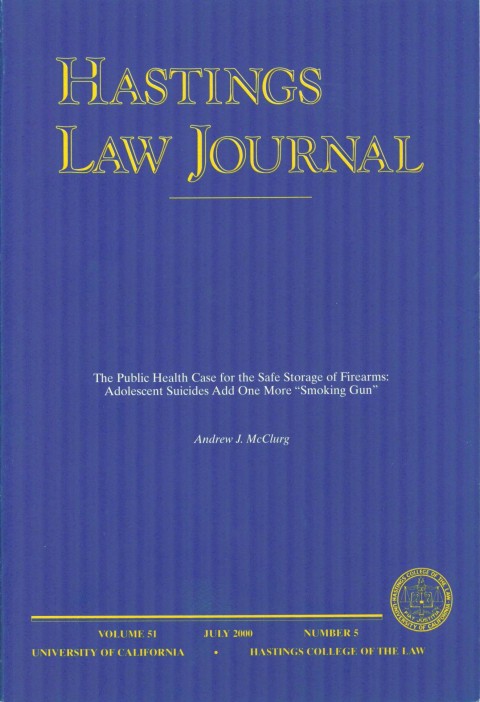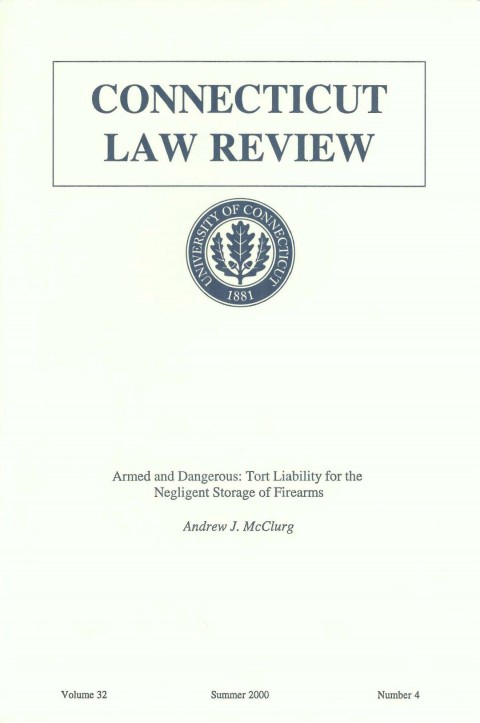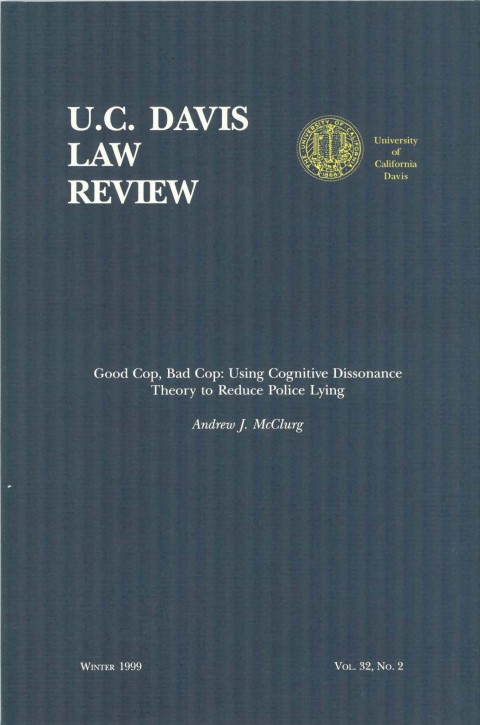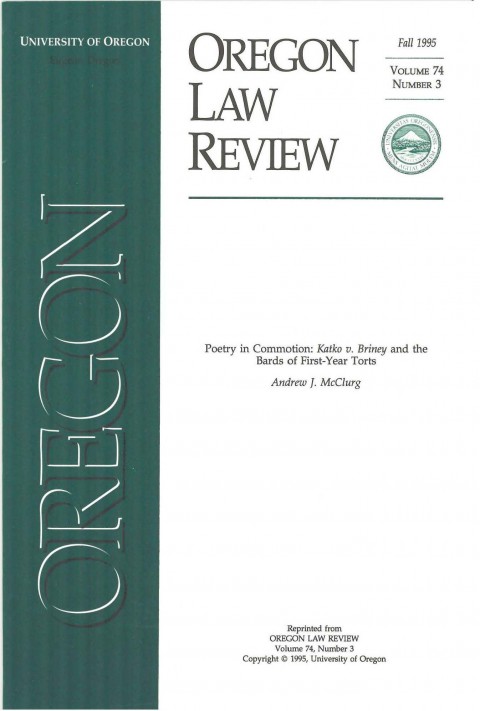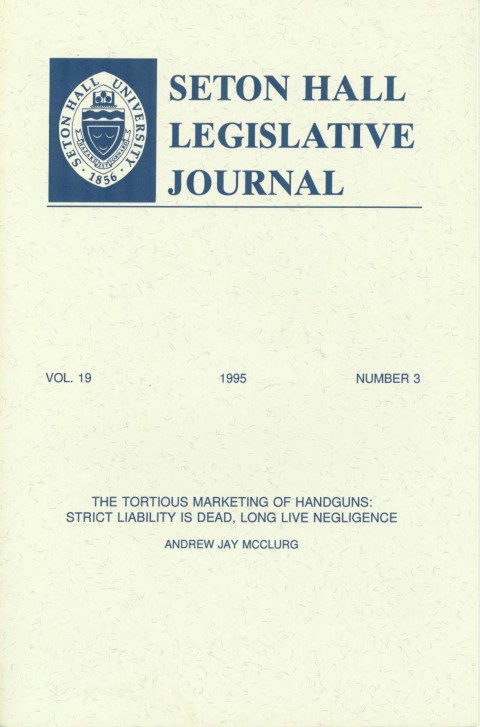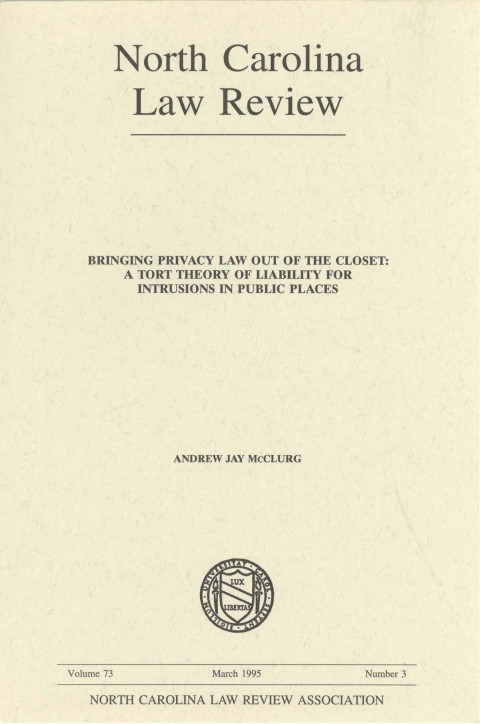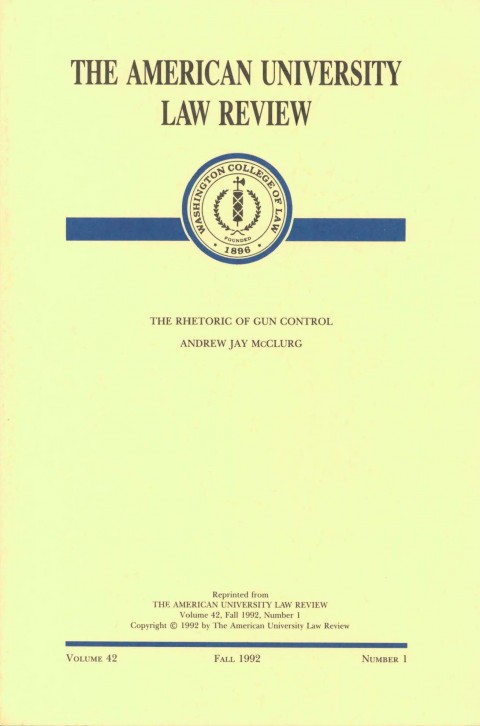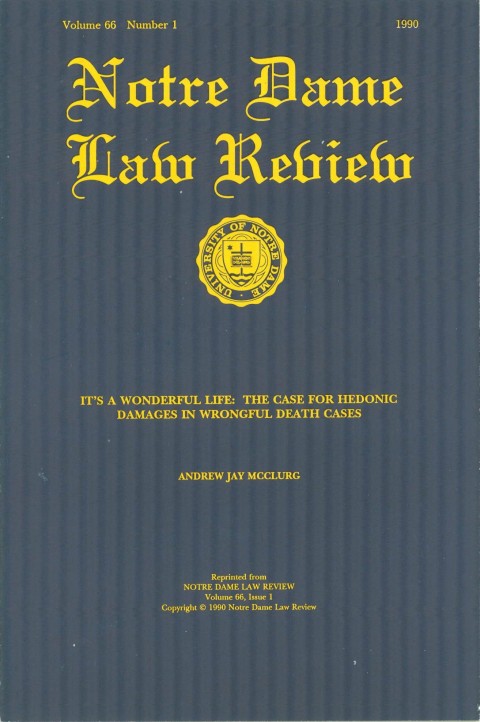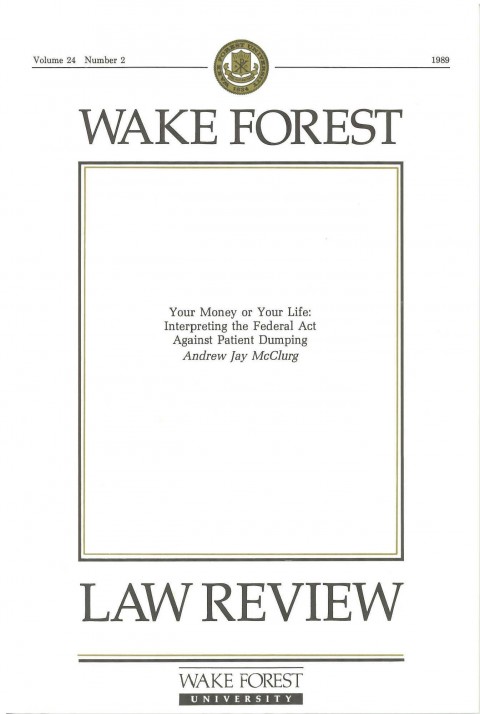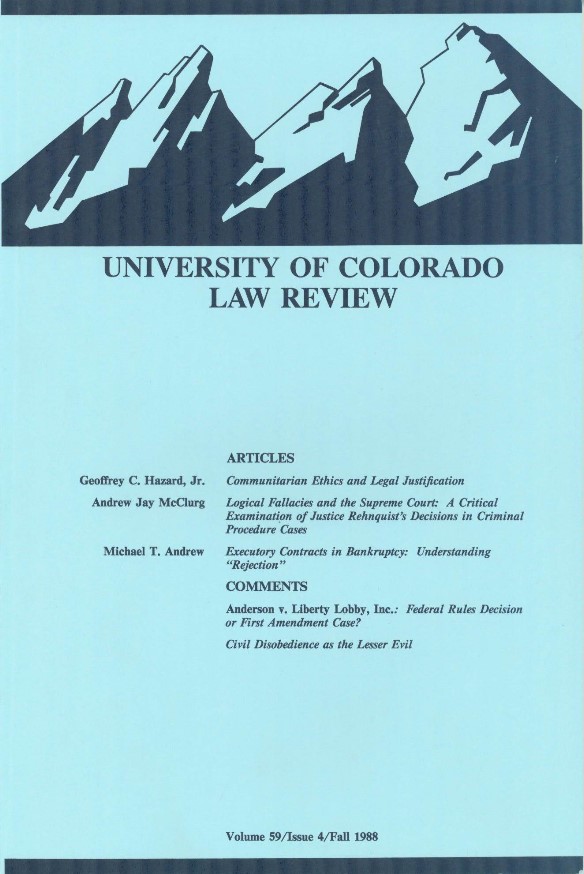May 18th, 2015  Stock photo – Not the real guy. Leave it to insurance coverage guru/legal humorist Randy Maniloff to track down the most interesting cases for his monthly publication, Coverage Opinions. Among this month’s excellent articles (which include a mock interview with Tom Brady), Randy revisits his insurance Coverage for Dummies contest with the case of Blank-Greer v. Tannerite Sports, LLC, No. 13-1266 (N.D. Ohio Apr. 21, 2015).
Here are the basic facts, borrowed from Randy’s excerpts from the court’s opinion:
In May 2012, [James] Yaney’s friend, Jason Vantilburg, in anticipation of the birth of his first child, asked Yaney to host a party to celebrate. Yaney and Vantilburg fashioned the party into a ‘diaper shootout,’ where guests could bring diapers for the new baby and enjoy an afternoon shooting guns in Yaney’s backyard. As a ‘grand finale’ to the party, they also decided to blow up an old refrigerator.
In preparation, Yaney used his [Yaney] Motorsports truck to haul the refrigerator from Vantilburg’s home to his property. He then used his trailer to tow a box van to his backyard so that guests had a target to shoot. On the day of the event, Yaney set up the Motorsports truck and trailer as a staging area for guns and ammunition. ***
Towards the end of the event, Yaney and Vantilburg decided it was time to blow up the refrigerator. They hauled the refrigerator from Yaney’s pole barn into the backyard. Guests stood behind tables fifty meters away from where the refrigerator was located. Vantilburg moved into position behind his rifle, fired at the explosives [H2] inside the refrigerator, and detonated them. The refrigerator immediately blew apart and sent shrapnel flying across the yard. A piece of shrapnel hit (guest) Plank–Greer’s hand, nearly severing it.
Read Randy’s full account of the case, which addressed the issue of whether the party host was acting in the scope of employment with respect to insurance coverage from his business. The court said no.
–Blank-Greer v. Tannerite Sports, LLC, No. 13-1266 (N.D. Ohio Apr. 21, 2015)
April 7th, 2012
 It's official. Tomatos are vegetables according to the Supreme Court. The next time someone raises the age-old debate as to whether a tomato is a fruit or a vegetable, show off your legal acuity (or nerdiness) by informing them you have it on good authority that tomatos are vegetables. No, in fact, make that great authority. Who? The U.S. Supreme Court.
More than 100 years ago, in Nix v. Hedden, Justice Horace Gray, speaking on behalf of a unanimous Supreme Court, ruled that a tomato is a vegetable as a matter of law.
The Tariff Act of 1883 declared a 10 percent duty on all vegetables entering the country, but allowed fruit to enter duty-free. The New York Customs Collector saw an opportunity to increase revenue and declared the tomato to be a vegetable.
Angry importers sued and their case reached the Supreme Court, where Justice Gray said: “[A]lthough botanists consider the tomato a fruit, tomatoes are eaten as a principal part of a meal, like squash or peas, (and all grow on vines), so it is the court’s decision that the tomato is a vegetable.”
— Nix v. Hedden, 149 U.S. 304 (1893). Thanks to Lihwei Lin.
December 16th, 2011
 Friend your trial judge on Facebook. Facebook is creating a quickly growing pile of novel legal issues in a variety of areas. Here’s one of the first to reach a state supreme court: Does a witness’ wishing a trial judge happy birthday on the judge’s Facebook page violate the rules on ex parte communications?
The plaintiff in Onnen v. Sioux Falls Independent School District # 49-5 worked as the registrar for Southeast Technical Institute in Sioux Falls—an entity of the Sioux Falls School District. Plaintiff was terminated from employment in August 2007 due to improprieties relating to the registrar’s duty to verify a student’s compliance with graduation requirements. Among other things, some 28 students had been improperly awarded degrees, while 40-50 students entitled to a diploma did not receive one. The plaintiff appealed the termination. The trial court affirmed the decision and the South Dakota Supreme Court affirmed the trial court’s decision.
Among the issues raised on appeal, the plaintiff argued that a “major witness” for the School District had improperly engaged in an ex parte communication with the trial judge by wishing him “Happy Birthday” on the judge’s Facebook profile page. The court held that the trial judge was not required to disqualify himself and that an uninvited and unresponded-to happy birthday greeting on Facebook does not rise to the level of an improper ex parte communication.
I’m assuming the witness (who apparently was a distant relative of the judge) was a Facebook friend of the judge to be able to post a birthday greeting. If so, is that a problem? Some states have rules prohibiting judges from being on Facebook. Is that a free speech violation? An interesting legal question raised by social networking–one of first of what is going to be a long list.
— Onnen v. Sioux Falls Independent School District, Case No. 49-5, 2011 S.D. 85 (2011). Thanks to Professor Roger Baron.
December 15th, 2011  Rats, agitated about their shrinking legal rights after judge rules that squirrels are better than them. In a 1954 Georgia case, an insured sued his insurance company for property damage caused by a squirrel. The insurance company denied coverage under an exclusion for “vermin.” The issue was whether squirrels are vermin or some higher grade species. The court ruled for the plaintiff, stating (some paragraph breaks inserted):
The brief of counsel for the defendant in error (which, incidentally; includes an excellent recipe for squirrel stew) concludes with the following words, with which this court is inclined to agree:
“‘Vermin’ is a mighty harsh word to hurl at our little friend the squirrel. He has long been well considered and much thought of as a pet and an attractive addition to the scenery of any city, garden, or country yard. He is praised in song and story as a shining example to mankind of industry and thrift. It is respectfully submitted that this court should not label the little fellow as nothing more than ‘vermin’.”
It is all the easier to agree with this encomium, as the question of whether squirrels are vermin was submitted to the jury, and the plaintiff offered without objection a wealth of technical and opinion evidence to the effect that it is not so classified (vermin being “any noxious, mischievous or disgusting animal”), whereas the defendant failed to place our furry friend within the limitations of this category.
He certainly does not belong there as a matter of law, and as a matter of fact we are well content to leave the verdict undisturbed, there being no evidence to the contrary.
Nutkin the Squirrel would be pleased. As someone pointed out in a comment, this case is amusing, but also a good lesson in the importance of paying attention to every word when drafting legal documents, especially documents such as insurance policies that by their very nature depend on definitions.
— North British & Mercantile Ins. Co. v. Mercer, 82 S.E.2d 41 (Ga. App. 1954). Thanks to Paul Scott.
December 4th, 2011  Goldfish have rights, so quit flushing them down toilets. In People v. Garcia, the defendant appealed his conviction on multiple charges arising from a domestic assault episode that included stomping on some poor kids’ pet goldfish.
Judge James Catterson’s opinion explored the intriguing legal question of whether goldfish qualify as “animal companions” under statutes imposing enhanced felony penalties for abusing such companions.
The opinion started with an interesting history of animal domestication:
The earliest known domestic animal appears to be the dog, a companion to mankind as early as 15,000 B.C. Goats, sheep, pigs and cows followed in domestication in the next ten thousand years. Horses, however, did not succumb to the lure of mankind’s presence until 4000 B.C. The domestication of fish is believed to have begun much later, in China during the Tang Dynasty, around 620 A.D. The common goldfish (Carassius Auratus), a member of the carp family that was first domesticated in China, is now the most commonly kept aquarium fish. The goldfish’s leap from domesticated fish to family pet and companion may have happened as early as 1368 during the Ming Dynasty. The goldfish’s popularity in the West began as the first public aquarium opened in London in 1853. Keeping goldfish as companions and pets in the United States has been popular since that time.
The criminal statute at issue defined “companion animal” as any dog or cat or “other domesticated animal normally maintained in or near the household of the owner or person who cares for such other domesticated animal.” The defendant argued that goldfish don’t qualify.
Here’s a healthy excerpt of Judge Catterson’s terse, well-reasoned analysis of the issue:
The defendant contends that a fish is not a companion animal because it is not domesticated and because there is no reciprocity or mutuality of feeling between a fish and its owner, such as there is between a dog or a cat and its owner.
[The defendant cites to Am. Jur. 2d, which] defines “domesticated animals” as those that “no longer possess the disposition or inclination to escape,” and claims that “if dropped in a pond and offered the opportunity to swim away, a goldfish will do so without any hesitation and not look back”. He maintains that the statute’s reference to “any other” domesticated animal limits “companion animals” to those that are similar to dogs or cats, that is, those with a degree of sentience sufficiently elevated to enable them to enter into a relationship of mutual affection with a human being. Furthermore, “[b]eloved household pets (fish) may be, but ‘companion animals’ in the same vein as dogs or cats they are not”.
The defendant’s contention that all household pets are equal but some are more equal than others is manifestly not derived from the statute. The Legislature simply did not require a reciprocity of affection in the definition of “companion animal.” To the contrary, the statutory language is consistent with the People’s contention that “domesticated” is commonly understood to mean “to adapt (an animal or plant) to life in intimate association with and to the advantage of humans”. Thus, a goldfish such as the one herein is a domesticated rather than a wild animal within the common meaning of the term. Moreover, the goldfish was, as the statute requires, “normally maintained in or near the household of the owner or person who cares for [them].” Indeed, acknowledging that the goldfish is one of the most common household pets, defense counsel stipulated at trial that there are “millions of fish owners throughout the country”.
The defendant’s argument that goldfish are not domesticated animals because given the opportunity they would leave home is without merit. While this trait arguably distinguishes fish from dogs and, probably to a lesser extent cats, it fails to take into account that many other animals commonly considered pets, such as hermit crabs, gerbils, hamsters, guinea pigs and rabbits, would depart for less confining venues and greener pastures if given the opportunity. Loyalty, if that is what it is, is merely another characteristic urged by defendant-but not included by the Legislature-as a defining feature of a companion animal.
Moreover, [the statute] provides that “[n]othing contained in this section shall be construed to prohibit or interfere in any way with anyone lawfully engaged in hunting, trapping, or fishing ….” (emphasis added). This provision would be superfluous if a fish could not be considered a companion animal.
— People v. Garcia, 29 A.D.3d 255, 257, 260–61 (N.Y. App. Div. 2006). Thanks to Dan Green.
November 28th, 2011  Spouses now have to resort to old-fashioned eavesdropping in Alabama. Think of all the reasons people choose to live in different locales: job opportunities, climate, family ties, economic conditions, the ability to wiretap one’s spouse …
That last one might not have come readily to mind, but a U.S. Eleventh Circuit Court of Appeals judge thinks it could play into some couples’ relocation decisions. Read on:
An Alabama woman sued her former husband under the federal wiretapping act for taping her phone conversations made from within the marital home. The trial court granted summary judgment to the husband on the basis of a 1974 Fifth Circuit case, Simpson v. Simpson, which held that spouses can secretly tape each other’s conversations because of an implied interspousal wiretapping exception to the federal statute.
The Eleventh Circuit initially affirmed the summary judgment, relying on Simpson, but on rehearing en banc, reversed, overruling Simpson and the implied exception. It also ruled that the decision applied retroactively.
In dissent, Chief Judge Edmonson questioned whether it was fair to make the decision retroactive since some privacy-invading spouses might have relied on the exception in choosing to live within the Eleventh Circuit (which encompasses Alabama, Florida and Georgia). Edmonson wrote:
I am not trying to be facetious; but before today, some spouses might have chosen to live in the Eleventh Circuit because they could wiretap their own telephone without being liable under federal law. Even if we think it unlikely that someone would live in our Circuit to avoid liability under federal law for wiretapping their spouse, it is our job to ensure that someone cannot be punished retroactively for doing so, as the act was clearly lawful.
In his concurring opinion, Judge Carnes addressed the Chief Judge’s concern satirically:
I suppose, then, a conversation between a couple sitting around their breakfast table in, oh say, Colorado (the Tenth Circuit having rejected Simpson years ago) might have gone something like this:
Jim: Honey, I’ve been thinking, we ought to move to Alabama.
Liz: But Sweetheart, I thought you liked living in Colorado.
Jim: I do, Sugar, but there’s a problem.
Liz: What’s troubling you, Sweetie?
Jim: Well, Punkin’, Colorado is in the Tenth Circuit, and its federal appeals court has held that if I wiretap your private conversations without your knowledge and consent, I may have to pay you damages if you find out and sue me in federal court. But if we move to Alabama, which is in the Eleventh Circuit, its Simpson decision will allow me to invade your privacy electronically without having to worry about your having a civil claim against me in federal court.
Liz: But Honeybun, doesn’t Alabama’s criminal eavesdropping statute make it a crime to covertly record conversations without the consent of at least one of the parties to the conversation?
Jim: It does, Snookums, but all I’m worried about is the potential civil cause of action in federal court, not having to serve time in the state slammer.
Liz: You’ll look so good in jailhouse stripes, my Love. When do we move?
— Glazner v. Glazner, 347 F.3d 1212, 1228 n.13, 1223 (11th Cir. 2003) (Edmonson, C.J., dissenting, and Carnes, J., concurring). Thanks to Lisa Lin.
November 27th, 2011  Nothing better than wholesome "fresh vegetables." Great news for the diet-conscious. Frozen batter-dipped french fries are a “fresh vegetable” under the Perishable Agricultural Commodities Act, according to U.S. District Judge Richard Schell, Beaumont, Texas. And so are cheeseburgers!
Kidding about the cheeseburgers, but it’s true about the french fries. Although the court did not explicitly rule that french fries are fresh vegetables, that’s the legal effect of the opinion.
The ruling applies only to commerce, not nutrition, regulations, which focus on assuring buyers of agricultural commodities that they are getting what they paid for.
— Fleming Companies, Inc. v. U.S. Dep’t of Agriculture, 322 F.Supp.2d 744 (E.D. Tex. 2004). Thanks to Melanie Ware.
November 27th, 2011 You know a judicial document is going to be a great read when it is captioned:
Order Denying MAAF’s Motion to Preclude the French Phrase ”Quel Jeu Doit-on Jouer Vis-à-vis des Autorités de Californie?” From Being Translated as “What Game Must We Play With the California Authorities?”
This opinion from U.S. District Judge A. Howard Matz (C.D. Cal.) stemmed from the judge’s frustration in overseeing a series of over-litigated lawsuits arising from the collapse of a California insurance company. The motion giving rise to the order, after all, was the twentieth motion in limine the judge had addressed in recent days.
Judge Matz seemed irritated that “some of the French litigants caught up in these complicated cases are still coping with the ‘mystifying’ peculiarities of American courts. They appear to assume, for example, that no judge is capable of using common sense (and perhaps some pre-existing familiarity with French) to understand a straightforward French phrase.”
The motion turned on the meaning of the French word “jeu” in a document addressed to one of the French defendants. The document posed a question: “Quel jeu doit-on jouer vis-à-vis des autorités de Californie?” The California Insurance Commissioner’s expert asserted the question translates to: “What game must we play with the California authorities?” The defendant’s expert claimed it means: “What approach must we take with the California authorities?”
Judge Matz accused the defendant’s expert of playing games with the court (paragraph breaks inserted):
If M. Simonet [composer of the document] was not speaking about a “game,” surely Ms. Zarelli [defendant’s expert translator] is playing one. The problems with her declaration are abundant. First, she relies only on a French-to-French dictionary. Wouldn’t the fairest, most reliable way to ascertain the correct English meaning of “jeu,” as M. Simonet used it, be to consult a French to English dictionary?
That’s what the Commissioner’s expert translator does: she points to Harrap’s Shorter Dictionnaire. . . . And what does that more reliable source reveal? Zut alors! Of the many definitions and examples of how “jouer” and “jeu” are translated, almost all are perfectly consistent with how “jeu” was translated in the document that MAAF seeks to keep out: as a “game,” and often with a connotation of “trickery.” Harrap’s even translates “jouer le jeu” as “to play the game.” It translates other examples of the use of “jeu” into such familiar, straightforward English words andphrases as “all this fooling around;” “what’s your game?;” “to play into one’shands . . ..”
Moreover, as the Commissioner’s language expert points out, the definition that Ms. Zarelli happened to choose — “manière d! agir” — includes, if one bothers to take the complete entry into account, which Ms. Zarelli did not do — “manège” and “stratagème.” The connotations of those terms are hardly helpful to MAAF; they mean “ploy” or “trick.” In short, both the literal meaning and the context in which M. Simonet asked his not-so-rhetorical question “Quel jeu doit- on jouer vis-à-vis des autorités de Californie?” is entirely consistent with “What game must we play with the California authorities?”
Judge Matz must have been enjoying himself by this point because he added a closing footnote comparing the bravery and last name of the plaintiff’s lawyer—one “Ney”—to “Ney, the Duc d’Elchingen and Prince de la Moskova,” an army commander who Napoleon once called “the bravest of the brave.”
What did the lawyer do that was so brave? He had the nerve (“considerable fortitude,” as Matz put it) to file what the judge considered to be a ridiculous motion.
— Garamendi v. Altus Fin. S.A., Case No. CV-99-2829 (CWx) (C.D. Cal, Feb. 10, 2005). Thanks to Michael Barclay
November 27th, 2011 State v. Terrazas, a 1999 case out of the Texas Court of Criminal Appeals, turned on the meaning of a statement made by a state investigator to a defendant that led to the defendant confessing. The issue reminded dissenting Judge Price of a legal brainteaser from the movie Let Him Have It based on the controversial true story of a young man who was hanged for murder in 1953. Here’s Judge Price’s footnote on the matter (paragraph breaks inserted):
1. This issue calls to mind the film “Let Him Have it” which was based on the famous Derek Bentley Confession case in post-WWII England.
Two boys who were trying to break into a building were cornered on a rooftop by a policeman. One of the boys had a gun. The policeman calmly reached out his hand and asked the boy to hand over the gun.
The other boy said, “Let him have it.” The boy with the gun pulled the trigger and killed the officer.
What did the phrase, “Let him have it,” really mean? There are two possibilities: “Hand over the gun!” Or “Shoot him!” A British jury decided upon the second possibility and the boy, a retarded young man named Derek Bentley was convicted of murder and hanged.”
The legal tip from this case is that it’s always smarter to always use nouns and articles rather than pronouns when responding to police commands.
— State v. Terrazus, 4 S.W.3d 720, 729 (Tex. Crim. App. 1999) (Price, J., dissenting). Thanks to Senior Judge James Barlow.
November 26th, 2011 U.S. Court of Appeals for the Third Circuit reversed a district judge in Pennsylvania, finding impropriety in the fact that the judge’s opinion dismissing plaintiff’s claims was “nearly identical” to a proposed order and opinion submitted by defendants’ lawyers.
The court had previously expressed its disapproval of trial courts adopting proposed “findings of fact and conclusions of law” submitted by the prevailing parties in litigation, although it said that such copying would not be ground for reversal unless the findings were clearly erroneous. This situation was different, according to the court, because it involved an “opinion”:
Here, however, we are not dealing with findings of fact. Instead, we are confronted with a District Court opinion that is essentially a verbatim copy of the appellees’ proposed opinion.
…
Judicial opinions are the core work-product of judges. They are more than findings of fact and conclusions of law; they constitute the logical and analytical explanations of why a judge arrived at a specific decision. They are tangible proof to the litigants that the judge actively wrestled with their claims and made a scholarly decision based on his or her own reason and logic. When a court adopts a party’s proposed opinion as its own, the court vitiates the vital purposes served by judicial opinions.
Certainly, the court seems correct in ruling that parties to litigation have a fair and reasonable expectation that the judge, not the parties, should be the one to articulate the reasons for the decision.
However, the court’s distinction between ghostwritten opinions and ghostwritten findings of fact and conclusions of law doesn’t hold up. Opinions and Findings of Fact and Conclusions of Law are the same thing, differing only in format. Both documents dispose of the losing party’s claims and give the reasons why.
And in fairness to the trial judge, it should be noted that he was following a common practice, as evidenced by the fact that the plaintiff’s lawyer devoted only one footnote of the appellate brief to the issue.
After my first trial as a young lawyer a million years ago, the trial judge–who was highly regarded and ultimately elevated to the Florida Supreme Court–called our firm, said our client had won, and asked us to draft an opinion to send to him. Ghostwriting for judges is as old as … well, ghostwriting.
— Bright v. Westmoreland County, 380 F.3d 729, 732 (3rd Cir. 2004).
November 24th, 2011  George W. Bush -- Sued by whales. Lawhaha.com obviously has great fondness for judges who liven up their opinions with humor and other writing spice, but a case from the U.S. Court of Appeals for the Ninth Circuit shows why judges need to exercise care in stirring in these ingredients.
In a suit brought against George W. Bush and Donald Rumsfeld on behalf of all whales, dolphins, and porpoises, the Ninth Circuit had to decide whether animals have standing to sue on their own behalf under the Endangered Species Act and other federal statutes.
The plaintiff was “the Cetacean Community,” a name chosen by the Cetaceans’ self-appointed attorney for all of the world’s whales, porpoises, and dolphins. The Cetaceans challenged the U.S. Navy’s use of low frequency sonar used to detect enemy submarines because the sonar harms marine life.
Bush and Rumsfeld moved to dismiss on the ground that the animals lacked standing to bring suit. The district court agreed and dismissed the action.
The animals appealed, relying on a statement made in a previous environmental case—Palila v. Hawaii Dep’t of Land and Natural Resources—in which the Ninth Circuit had indicated that an endangered member of the honeycreeper family, the Hawaiian Palila bird, had standing to sue on its own behalf. The specific language was that the bird “has legal status and wings its way into federal court as a plaintiff in its own right.”
The court had to decide whether the Palila language was binding precedent or only loose dicta. It ruled it was the latter, calling the statements “little more than rhetorical flourishes.”
With respect to the substantive issue, the court added that “It is obvious that an animal cannot function as a plaintiff in the same manner as a juridically competent human being.” Hmm, perfect entry for making a political joke about one of the defendants, but we try to stay apolitical.
The fact that courts have held monkeys, whales, and assumely all other non-human species (along with their human champions) lack standing to seek protection from the judicial system raises a troubling question: Who’s left to look out for them?
— Cetacean Cmty. v. Bush, 386 F.3d 1169 (9th Cir. 2004). Thanks to Daniel Green.
November 24th, 2011
 Prosecutor used Celine Dion's and Enya's music to soften up jury. Salazar v. Texas was a grisly murder case involving a victim and alleged dope dealer named Jonathon. Jonathon’s cohorts turned on him and killed him by beating him with baseball bats and strangling him with wire.
At the punishment phase of the trial, over the objection of defense counsel, the state played a professionally edited video montage of Jonathon’s life, complete with music by Enya and Celine Dion!
The defendant appealed on the ground that the videotape was prejudicial. Here’s how the appellate court described the videotape (paragraph breaks inserted):
This video is an extraordinarily moving tribute to Jonathon Bishop’s life. It consists of approximately 140 still photographs, arranged in a chronological montage. Music accompanies the entire seventeen-minute video and includes such selections as “Storms in Africa” and “River” by Enya, and concludes with Celine Dion singing, “My Heart Will Go On,” from the movie Titanic.
Almost half of the approximately 140 photographs depict the victim’s infancy and early childhood. The pictures show an angelic baby, surrounded by loving parents, grandparents, unidentified relatives, and other small children. Later photographs show Jonathon as a toddler, playing the piano, frolicking at the beach with other friends, happily riding on a carousel, laughing in a field of bluebonnets, and cuddling with a puppy.
The video also includes numerous annual school pictures showing Jonathon’s progression from a cheerful child to a equally cheerful young man. It catalogs his evident and early prowess as a young soccer player and eventually as a football player. There is a picture of him and his date, presumably going to their prom, and more candid shots of the victim and his teen-age buddies. The video includes many family reunion portraits showing Jonathon’s entire extended family.
Understandably, this professional and polished production portrays Jonathon in a very positive light and it is entirely appropriate for a memorial service. The music, too, is appropriately keyed to the various visuals, sometimes soft and soothing, then swelling to a crescendo chorus. In sum, it is a masterful portrait of a baby becoming a young man. It is also extraordinarily emotional.
The court held it was reversible error to admit the videtape into evidence on the ground that its relevance was outweighed by its prejudicial value, stating:
[The] prejudicial effect is enormous because the implicit suggestion is that the appellant murdered this angelic infant; he killed this laughing, light-hearted child; he snuffed out the life of the first-grade soccer player and of the young boy hugging his blond puppy dog.
— Salazar v. State, 90 S.W.3d 330, 333–34, 337 (Tex. Crim. App. 2002). Thanks to Texas Senior Judge James Barlow.
November 24th, 2011 Goshgarian v. George involved warring neighbors, one of whom continually dumped dirty water from his swimming pool onto the other’s property.
The water-dumping defendant came up with the imaginative, if not quite legally sound, argument that, since the County of Fresno had an easement on the property for the drainage and disposal of water, the individual defendant should have the same right.
The court was downright astonished by the creativity of the argument (paragraph breaks inserted):
Only a mind unburdened by the ephemeral shackles of legal training and gloriously free of the stultifying pomposities of precedent and stare decisis could have formulated the epiphanous principle that what the public may do as an entity, so may individual members of the public do, acting in their individual capacities.
Appellate counsel for cross-complainants, with an imagination dulled by years of legal training, evidently lacked the audacity to appreciate cross-defendants’ argument and misinterpreted (and diminished) it as a mundane attack upon the sufficiency of the evidence to support the jury’s finding of trespass.
Not so. Cross-defendant Mr. George is on the wave front of the expanding legal universe, Prometheus unbound by the strictures of logic and reason that constrain lawyers and judges in their quotidian professional functions.
There is just one problem. The easement is for storm drain water, not mosquito infested swimming pool effluent.
— Goshgarian v. George, 161 Cal. App. 3d 1214, 1222–23 (1984). Thanks to Eli Ben-Shmuel.
November 24th, 2011 Judge Mark Painter, a judge on the Ohio Court of Appeals, sent in a couple of his own funny opinions. The first one he wrote back when he was a municipal court judge. Lawhaha.com clings steadfastly to being a family friend site, but it’s not easy when a primary source of Strange Judicial Opinions is that haven for adult-oriented material known as the National Reporter System.
In State v. Parenteau, the defendant was charged with public indecency. We’ll let Judge Painter explain what happened:
Defendant was part of a “lingerie fashion show” at a nightclub named “Scandals” in western Hamilton County. The charge arose from the modeling by defendant of a lace brassiere which was alleged by the officer to be “see-through,” in that the officer testified he could observe a nipple area through the lace fabric. Defendant was apprehended after she had retired to a back room to change her clothing. The officers asked Parenteau for the clothing she was wearing, which they confiscated.
The evidence produced in court included a lace brassiere, a pair of underpants, stockings, and a small square of pantyhose fabric. The panties and stockings were not relevant, considering that the charge was not based upon anything in connection with the defendant’s lower anatomy. Defendant testified that she wore the pantyhose fabric under the bra in order to be certain that it was not transparent in the area of the nipple. Defendant further stated that she was wearing two such squares, one on each breast, during the performance, but that only one was in evidence, since she had already removed her bra when she was arrested, and the other square had dropped out and was not recovered by the officers. An additional witness testified that she saw defendant cutting pantyhose to make the squares before she dressed. Much ado was made about whether one or two squares were worn, but in the court’s view of the law, the existence or nonexistence of the pantyhose material within one side of the brassiere is not controlling.
The question presented is whether the defendant can be convicted of public indecency … for wearing a lace brassiere which totally covered her breasts, but was partially transparent, or “see through.” If so, does the insertion of pantyhose material, rendering the brassiere less “see through,” change the result?
The result turned on the meaning of “private parts” as used in the public indecency statute. Judge Painter cited numerous sources supporting the proposition that “private parts,” as used in the law, refers to the genital area only. As such, he acquitted the defendant.
— State v. Parenteau, 564 N.E.2d 505, 505 (Ohio Mun. 1990).
November 24th, 2011 Ohio Court of Appeals Judge Mark Painter combined humor and common sense in Gibson v. Donahue, where the plaintiff was injured being thrown from her horse, which was spooked by two Irish Setters that the defendant allowed to run free in an area restricted to equestrian use.
Talk about creative lawyering. The defendant tried to escape liability by relying on an Ohio statute intended to provide tort immunity for riding stable owners and horse show operators for injuries resulting from the inherent risks of equine activity (a statute Painter said “is noteworthy mainly for using the word ‘farrier’ ten times”).
Judge Painter observed that the case was one of first impression, “probably because no one before has been audacious enough” to try to extend the statute to a situation like this one.
Defendant did have a slim statutory leg to stand on. The statute extends immunity to “an equine activity sponsor, equine activity participant, equine professional, veterinarian, farrier, or other person.” However, Judge Painter said that for defendant’s construction to prevail, the statute would have to be read as applying to “any other person in the whole world.” Construed as defendant argued, “[a] person who negligently crashes an airplane into the crowd at an equine event would thus be immune to liability.”
By the way, a farrier is a blacksmith. Remember that if you’re a law student in Ohio. It might be on the bar exam.
— Gibson v. Donahue, 772 N.E. 2d 646, 648, 650 (Ohio Ct. App. 2002).
November 21st, 2011 Would a reasonably prudent dog batter a postal worker, negligently knock over a vase with a wagging tail or trespass on property to urinate or defecate?
Maybe we’ll find out, now that a court has held that a dog in a dog-bite case was to be judged by a “reasonable dog” standard.
In Kirkham v. Will, an Illinois intermediate appellate court held that, in deciding whether the defense of provocation applied in a dog-bite case, the appropriate test to apply was the “reasonable dog” standard; that is, how a reasonable dog would have reacted to the plaintiff’s presence under similar circumstances.
How a reasonably prudent person would have behaved under a given set of circumstances is one of the great imponderables of tort law that jurors, law students, lawyers, judges and law professors struggle with every day. Despite manifold attempts to define the standard, answers remain elusive.
We entrust the decision to jurors because they presumably know how reasonable people would act. Are they competent to determine how reasonable dogs would act? I can see it now, ads for expert witnesses in “Canine Behavior.”
— Kirkham v. Will, 724 N.E.2d 1062, 1065 (Ill. App. Ct. 2000). Thanks to Darius Asly.
November 21st, 2011  Simon and Garfunkel - Noted admiralty law experts. In U.S. v. McPhee, the defendants were charged with conspiracy to import marijuana, after their boat, the Notty, was intercepted by Coast Guard cutters off the coast of Florida.
A key jurisdictional issue was whether the boat was intercepted within the territorial waters of the Bahamas. Defendants argued it was, on the basis that the interdiction occurred within 12 miles of Saint Vincent Rock, which defendants asserted is a Bahamian island. The government argued that Saint Vincent Rock is only a “rock” and does not qualify as an “island.”
The U.S. Court of Appeals for the Eleventh Circuit agreed with the government, although it conceded the question was not without its nuances, citing Simon & Garfunkel as authority (paragraph breaks inserted):
FN 9. The Government argued that the Notty was in international waters or on the “high seas” because “Saint Vincent Rock is a rock. If it was an island, it would be called Saint Vincent Island, not Saint Vincent Rock.” Ultimately, we must determine whether it is a rock or an island according to the statutory definitions provided by the Archipelagic Act.
We note in passing that for some purposes, the label is not altogether satisfying. Thus, for example, in the metaphysical sense, we can discern no reason why something could not be both a rock and an island at the same time.
See Paul Simon and Art Garfunkel, I am a Rock, on Sounds of Silence (Columbia 1966) (“A winter’s day, in a deep and dark December. I am alone, gazing from my window, to the streets below, on a freshly fallen silent shroud of snow. I am a rock, I am an island. I’ve built walls, a fortress deep and mighty, that none may penetrate. I have no need of friendship, friendship causes pain. It’s laughter and it’s loving I disdain. I am a rock, I am an island. Don’t talk of love. Well I’ve heard the word before. It’s sleeping in my memory. I won’t disturb the slumber of feelings that have died. If I never loved, I never would have cried. I am a rock, I am an island. I have my books and my poetry to protect me. I am shielded in my armor. Hiding in my room, safe within my womb, I touch no one and no one touches me. I am a rock, I am an island. And a rock feels no pain. And an island never cries.”).
The court did note, however, that “neither Simon nor Garfunkel has been identified as a nautical expert.”
Maybe the government could have bolstered its jurisdictional case by citing John Mellencamp and arguing that the “R.O.C.K. [was] in the U.S.A.”.
— United States v. McPhee, 336 F.3d 1269, 1279 n.9 (11th Cir. 2003). Thanks to Michael Hirschkowitz.
— See also United States v. Horn, 185 F. Supp. 2d 530, 551 n.37 (D. Md. 2002) (“She blinded me with science!”). Thanks to Kevin Cross for providing this Thomas Dolby-influenced citation in the same vein pop-music theme as McPhee, in proper Bluebook-form no less.
November 18th, 2011  Family friendly depiction of the injury. Doe v. Moe, a May 2005 Massachusetts appellate case, gives a whole new meaning to the idea of safe sex. A guy sued his long-time girlfriend (ex-girlfriend?) for negligence when an ill-advised change in position during consensual intercourse resulted in him suffering a fractured penis. (The opinion gives details about how the accident occurred.)
In a case of first impression, the court struggled to arrive at an appropriate and workable standard of care to apply to private consensual sexual conduct. The court noted:
There are no comprehensive legal rules to regulate consensual sexual behavior, and there are not commonly accepted customs or values that determine parameters for the intensely private and widely diverse forms of such behavior.
Accordingly, the court concluded that the general negligence standard of reasonable care under the circumstances was inappropriate for consensual sex-physical injury cases.
Instead, the court said the plaintiff needed to show conduct rising to the level of “wanton or reckless.” The court opined that while the trial record might support a finding that the defendant’s conduct exposed plaintiff to a risk of harm, it did not support a finding of wanton or reckless conduct.
The case does raise an interesting legal issue. With so many different preferences and positions and idiosyncratic fantasies and fetishes, is there such a thing as a standard of “ordinary and reasonable care” for sex?
— Doe v. Moe, 827 N.E.2d 240, 245 (Mass. Ct. App. 2005). Thanks to David Keller and Professor Howard Wasserman.
November 17th, 2011  Chief Justice John Marshall, author of Marbury v. Madison. In a 2005 opinion, an Alabama Supreme Court justice (that well-known jurisprudential heavyweight “Tom Parker”), without a trace of irony, called the U.S. Supreme Court “presumptuous” while declaring Marbury v. Madison and its progeny to be “unconstitutional.”
For non-legal types, Marbury is the landmark 1803 Supreme Court case authored by the great Chief Justice John Marshall that established the power of “judicial review”; i.e., that the Supreme Court gets the last word in disputes with the legislative and executive branches of government.
The Alabama case involved a challenge to the constitutionality of certain statutes affecting taxation and the funding of the Birmingham, Alabama civic center authority. Justice Parker included this footnote in his concurrence (italics added.):
21. . . . Despite everything in the text of the Constitution, its history, and the expressed intent of the Framers being completely contrary to the notion of judicial supremacy, the United States Supreme Court has presumptuously arrogated such a position for itself simply by declaring it so.
In Cooper v. Aaron . . . the United States Supreme Court stated: “[Marbury v. Madison, 5 U.S. (1 Cranch) 137, 2 L.Ed. 60 (1803)] declared the basic principle that the federal judiciary is supreme in the exposition of the law of the Constitution and that principle has ever since been respected by this Court and the Country as a permanent and indispensable feature of our constitutional system.” Tellingly, this proclamation of judicial supremacy was made without citation to the Constitution or any other authority. The result of this unconstitutional doctrine of judicial supremacy has been an increasing shift of the balance of powers from the elected executive and legislative branches of the federal government to the unelected judiciary, thereby emboldening federal courts to rule upon constitutional questions based upon foreign law or perceived changes in public opinion instead of the Constitution and its history. . . .
The turning away from our national compact by federal courts now threatens our country with a constitutional crisis.
There’s a constitutional crisis over Marbury?
— Birmingham-Jefferson Civic Ctr. Auth. v. City of Birmingham, 912 So.2d 204, 223 n.21 (Ala. 2005) (Parker, J., concurring). Thanks to Brian Brock.
November 17th, 2011  Geoff Petis sent along this interesting case. I’ll let him tell you about it: Geoff Petis sent along this interesting case. I’ll let him tell you about it:
New York Judge Philip S. Straniere penned an opinion about “shrinkwrap” agreements—contracts that may or may not become valid upon the opening of the package. The agreements go by different names (shrinkwrap, clickwrap, etc.), but the rose still smells as sweet. Evidently, Judge Straniere—who apparently takes his pizza as seriously as his contracts — did not agree:
Before deciding the merits of this case the court must address a troubling issue. The computer industry and other courts have adopted the term “pizza box” to describe the package in which the document containing the terms and conditions of the agreement is shipped. As a matter of law in the State of New York, such a container is not a “pizza box.” No self-respecting New York pizza would be caught soggy in such a box. The container may pass as a “pizza box” in those parts of the world that think food from Domino’s, Little Caesars, Pizza Hut, and Papa John’s is pizza. In this court’s opinion such a classification cannot be recognized east of the Hudson River.
Judge Straniere, having fun with this case, goes on to quote Ira Gershwin, Mandy Patinkin, and Marie Antoinette, among others.
— Licitra v. Gateway, Inc., 734 N.Y.S.2d 389, 391 (N.Y. Civ. Ct. 2001). Thanks to Geoff Petis.
November 16th, 2011  Won a defamation judgment for being called ugly. A 1996 English libel case reminds me of the old Rodney Dangerfield joke: “My psychiatrist told me I’m going crazy. I told him, ‘Doc, if you don’t mind I’d like a second opinion.’ He said, ‘Alright, you’re ugly too.’”
In Berkoff v. Burchill, an English court of appeals held that describing a person as ugly can constitute actionable defamation. No wonder people are flocking to England to take advantage of the country’s plaintiff-friendly libel laws. It’s highly doubtful calling someone ugly would be actionable defamation under U.S. law.
(By the way, this practice, known as “libel tourism,” resulted in enactment of a 2010 U.S. law that prohibits U.S. courts from enforcing foreign defamation judgments if they were rendered under legal protections less protective of speech than U.S. standards. Berkoff’s suit, against an English newspaper, was not a case of libel tourism.)
The English case arose from a Sunday Times article in which defendant Burchill reviewed the movie The Age of Innocence. Burchill described the film director, Steven Berkoff, as “hideous-looking.”
Nine months later, Burchill once again called Berkoff’s pulchritude into question, this time in a review of the movie Frankenstein. Describing “the Creature,” Burchill said: “It’s a very new look for the Creature—no bolts in the neck or flat-tap hairdo—and I think it works; it’s a lot like Stephen Berkoff, only marginally better-looking.”
Berkoff sued for defamation. The issue was whether calling someone hideous-looking is a defamatory statement capable of injuring a person’s reputation. The appellate court answered affirmatively.
The court said a jury could “conclude that in the context the remarks about Mr. Berkoff gave the impression that he was not merely physically unattractive but actually repulsive” and that this could injure Berkoff’s ability to make a living by “lowering his standing in the estimation of the public … [by] making him an object of ridicule.”
Is truth a defense? He looks okay in this picture (photo by Getty, borrowed from The Telegraph).
— Berkoff v. Burchill, [1996] 4 All E.R. 1008 (Ct. App. 1996). Thanks to Heiner O. Mommsen.
November 13th, 2011
 All the horsepower without the sharp teeth or drunk-driving convictions. Things weren’t looking good for the defendant in State v. Stagno after getting pulled over by a state trooper. With a blood alcohol level of .197 and two DUI convictions in the past ten years, he almost certainly would’ve lost his driver’s license if he’d been driving his friends to the topless bar in his car.
But thanks to a drunken bet made earlier in the evening, the defendant’s mode of transportation on this wild night out was not a car at all—it was a “fifteen-foot 1985 Air Gator airboat, powered by a 455 cubic inch Buick engine.”
Because the applicable statute allowed judges to revoke driver’s licenses only when the vehicle driven required a license, the trial court had to settle for imposing a $1,000 fine, thirty days in jail, and alcohol rehabilitation counseling.
The Alaska Court of Appeals affirmed the lower court’s ruling, agreeing that a fifteen-foot airboat is not a motor vehicle requiring a driver’s license.
— State v. Stagno, 739 P.2d 198 (Alaska Ct. App. 1987)
November 6th, 2011  Barbie, looking effervescent despite lawsuit loss. In 1997, the Danish band “Aqua” released a parody of America’s favorite thin plastic girl, Mattel’s Barbie®, called “Barbie Girl.” Mattel sued for trademark infringement and dilution. The federal district court in California granted summary judgment against the plaintiff, ruling the song was protected parody.
The U.S. Court of Appeals for the Ninth Circuit affirmed in an opinion by Judge Alex Kozinski. Judge K opened by posing the case as an epic battle between free speech and intellectual property rights. In his words, “[i]f this were a sci-fi melodrama, it might be called Speech-Zilla meets Trademark Kong.”
In ruling against Mattel, Kozinski opined that Barbie is much more than a mere product in the American conscious. She also had a more colorful past than you might realize:
Barbie was born in Germany in the 1950s as an adult collector’s item. Over the years, Mattel transformed her from a doll that resembled a “German street walker,” as she originally appeared, into a glamorous, long-legged blonde. Barbie has been labeled both the ideal American woman and a bimbo. She has survived attacks both psychic (from feminists critical of her fictitious figure) and physical (more than 500 professional makeovers). She remains a symbol of American girlhood, a public figure who graces the aisles of toy stores throughout the country and beyond. With Barbie, Mattel created not just a toy but a cultural icon.
It’s true. Barbie is a myth, a legend, and, for better or worse, represents the dreams of little girls everywhere. My daughter used to own probably a dozen Barbies. At what point, if any, can a product image become part of the public domain because it has become woven into the fabric of culture itself?
As Kozinski said in discussing Mattel’s trademark-infringement claim:
The problem arises when trademarks transcend their identifying purpose. Some trademarks enter our public discourse and become an integral part of our vocabulary. How else do you say that something’s “the Rolls Royce of its class”? What else is a quick fix, but a Band–Aid? Does the average consumer know to ask for aspirin as “acetyl salicylic acid”? Trademarks often fill in gaps in our vocabulary and add a contemporary flavor to our expressions. Once imbued with such expressive value, the trademark becomes a word in our language and assumes a role outside the bounds of trademark law.
Don’t remember Aqua’s one-hit wonder novelty song? No worries. The court attached the lyrics as an appendix. Here’s the chorus to refresh your memory:
I’m a Barbie girl, in my Barbie world
Life in plastic, it’s fantastic
You can brush my hair, undress me everywhere
Imagination, life is your creation
Come on Barbie, let’s go party!
Here’s the Official YouTube video.
Mattel, this is more humor. Don’t sue.
— Mattel, Inc. v. MCA Records, Inc., 296 F.3d 894, 898, 909 (9th Cir. 2002).
|
Funny Law School Stories
For all its terror and tedium, law school can be a hilarious place. Everyone has a funny law school story. What’s your story?
|
Product Warning Labels
A variety of warning labels, some good, some silly and some just really odd. If you come encounter a funny or interesting product warning label, please send it along.
|
Tortland

Tortland collects interesting tort cases, warning labels, and photos of potential torts. Raise risk awareness. Play "Spot the Tort." |
Weird Patents
Think it’s really hard to get a patent? Think again.
|
Legal Oddities
From the simply curious to the downright bizarre, a collection of amusing law-related artifacts.
|
Spot the Tort
Have fun and make the world a safer place. Send in pictures of dangerous conditions you stumble upon (figuratively only, we hope) out there in Tortland.
|
Legal Education
Collecting any and all amusing tidbits related to legal education.
|
Harmless Error
McClurg's twisted legal humor column ran for more than four years
in the American Bar Association Journal.
|
|
|



















